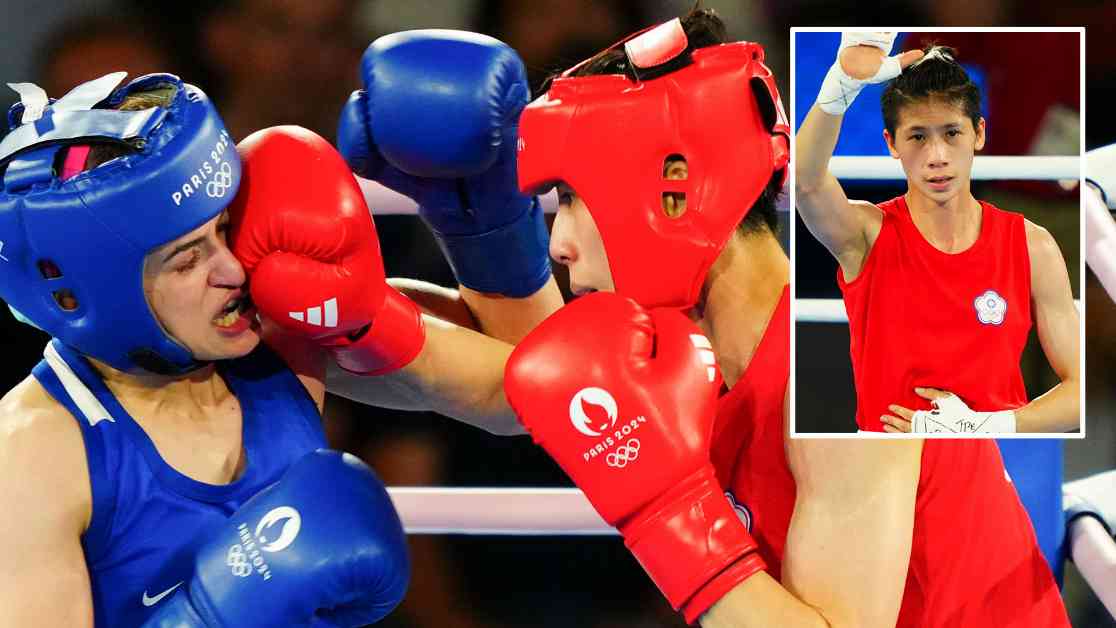Lin Yu-Ting recently spoke out against the International Boxing Association (IBA) in the midst of a boxing gender controversy. She criticized the organization for what she perceived as a deliberate attack on her integrity. Despite facing scrutiny over her appearance and being questioned about using female facilities, Lin remains determined to fight for an Olympic gold medal on Saturday.
The 28-year-old Taiwanese boxer was disqualified from last year’s women’s world championships alongside fellow gold-medal hopeful Imane Khelif due to alleged gender eligibility test failures. The IBA accused them of having high testosterone levels and XY chromosomes, typically associated with males, rather than the usual female XX combination. Lin has consistently identified as female and vehemently disputed the IBA’s test results, which were deemed inconclusive during a chaotic press conference.
Lin expressed frustration over losing a bronze medal and a source of income due to the controversy. She believes that her appearance, height, and hairstyle may have played a role in drawing attention and contributing to the scrutiny she faces. Despite the challenges, Lin remains resilient and focused on her upcoming fight for the gold medal.
The boxing gender controversy involving Lin Yu-Ting and Imane Khelif is not an isolated incident. Similar controversies have arisen in the past, notably with South African middle-distance runner Caster Semenya, who has a condition leading to higher testosterone levels. The debate around fairness in sports regulations, gender testing, and eligibility criteria continues to evolve, with the International Olympic Committee (IOC) emphasizing the importance of inclusivity and non-discrimination in sports participation.
The IOC and the Paris 2024 Boxing Unit have issued a statement reaffirming that all athletes participating in the Olympic Games comply with the competition’s eligibility and entry regulations. The rules are based on athletes’ passport information, with gender and age verification following established protocols. The statement addresses the misleading information surrounding the disqualification of Lin Yu-Ting and Imane Khelif, highlighting the need for transparent and evidence-based decision-making in such cases.
The IOC’s commitment to protecting the human rights of athletes and ensuring fair competition underscores the ongoing efforts to address gender controversies in sports. The withdrawal of recognition of the IBA by the IOC in 2023 further emphasizes the need for transparency and accountability in sports governance. As discussions continue on establishing a new International Federation for boxing, the focus remains on upholding integrity, inclusivity, and respect for all athletes.
In the face of adversity and challenges, athletes like Lin Yu-Ting demonstrate resilience, determination, and a commitment to pursuing their sporting dreams. The ongoing debates surrounding gender testing and eligibility criteria serve as a reminder of the complexities and nuances involved in ensuring fair and equitable competition in sports. As the sporting community navigates these issues, the principles of integrity, respect, and inclusivity remain paramount in shaping the future of sports participation and competition.

